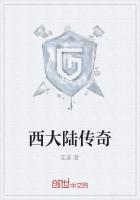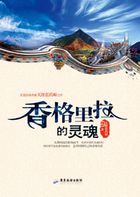In early 1917 I was appearing at the Metropolitan Opera House。 At that time I believed, as did many others, that the whole world's hope of liberty, regeneration, and civilisation depended on the Allies winning the war, so at the end of each performance I danced the“Marseillaise,”with the entire audience standing。This did not prevent me from giving my concerts of Richard Wagner's music, and I think that all intelligent people will agree that the boycotting of German artists during the war was unjust and stupid。
On the day of the announcement of the Russian Revolution all lovers of freedom were filled with hopeful joy, and that night I danced the“Marseillaise”in the real original revolutionary spirit in which it was composed, and followed it with my interpretation of the“Marche Slav,”in which appears the Hymn to the Tsar, and I pictured the downtrodden serf under the lash of the whip。
This antithesis or dissonance of gesture against music roused some storm in the audience。
It is strange that in all my Art career it has been these movements of despair and revolt that have most attracted me。 In my red tunic I have constantly danced the Revolution and the call to arms of the oppressed。
On the night of the Russian Revolution I danced with a terrible fierce joy。 My heart was bursting within me at therelease of all those who had suffered, been tortured, died in the cause of humanity。It is no wonder that L。,watching me night after night from his box, should in the end have been somewhat perturbed, or that he should ask himself whether this school of grace and beauty of which he was the patron might not become a dangerous thing that would lead him and his millions to annihilation。But my Art impulse was too strong for me and I could not arrest it even to please one I loved。
L。 gave a fête at Sherry’s in my honour。It began with a dinner, and went on through dancing to an elaborate supper。Upon this occasion he presented me with a wonderful diamond necklace。I had never wanted jewels, and had never worn any, but he seemed so delighted that I allowed him to place the diamonds round my neck。Towards morning, after gallons of champagne had continually refreshed the guests, and my own head was more or less light with the pleasures of the moment and the intoxication of the wine, I had the unhappy idea of teaching the Apache tango—as I had seen it danced in Buenos Aires—to a beautiful young boy who was present。Suddenly I felt my arm wrenched in an iron grasp, and looked round to find L。storming with rage。
This was the only occasion upon which I ever wore this unlucky necklace, for shortly after this incident, in another rage, L。 disappeared。I was left with an enormous hotel bill and all the expenses of my school on my hands。After appealing to him in vain for help, the famous diamondnecklace was taken to the pawnshop and I never saw it again。
So I found myself stranded in New York without funds, at the end of the season, when any more activity was practically impossible。 Fortunately, I had in my possession an ermine coat and also a wonderful emerald that L。had bought from the son of a Maharajah, who had lost all his money at Monte Carlo。It was said to have come from the head of a famous idol。I sold the coat to one famous soprano, the emerald to another famous soprano, and took a villa at Long Beach for the summer, installing my pupils there while I waited for the autumn, when it might again be possible to make money。
With my usual improvidence, once I had the money for the villa, the auto, and our daily needs, I recked but little of the future。 As I was now practically penniless, it would, no doubt, have been wiser to have invested the proceeds of the furs and jewels in solid stocks and bonds, but of course this never occurred to me, and we all spent a pleasant enough summer at Long Beach, entertaining, as usual, many artists。Among the guests who stayed with us there for several weeks was the genial violinist Isaye, who made our little villa glad with the tones of his beautiful violin morning and evening。We had no studio, but danced on the beach, and we gave one special festival in honour of Isaye, who was as delighted as a boy。
But, as may be imagined, after the pleasures of this summer, when we returned to New York I found myselfwithout any funds, and after two distracted months accepted a contract for California。
In the course of this tournée I found myself nearing my native town。Just before my arrival I had heard the news, which the papers had brought, of the death of Rodin。The thought that I should never see my great friend again made me weep so much that on seeing the reporters waiting on the platform at Oakland to interview me, not wishing them to notice my swollen eyes, I covered my face with a black lace veil, which caused them to write next day that I had afected an air of mystery。
It was twenty?two years since I had left San Francisco on my great adventure, and you can picture my emotion at returing to my native town, where everything had been completely changed by the earthquake and fire of 1906,so that it was all new to me and I could hardly recognise it。
Although the select and expensive audience at the Columbia Theatre was most kind and appreciative, as were the critics also, I was not satisfied, for I wanted to dance for the people on a great scale。 But when I asked for the Greek Theatre for this purpose, it was refused me。I have never known the reason for this refusal, whether it was owing to a want of strategy on the part of my manager or to some ill?will which I could not understand。
In San Francisco I met my mother again, whom I had not seen for some years, as, from an unaccountable feeling of homesickness, she refused to live in Europe。 She looked very old and careworn, and once, lunching out at the ClifHouse, and seeing our two selves in a mirror, I could not help contrasting my sad face and the haggard looks of my mother with the two adventurous spirits who had set out nearly twenty?two years ago with such high hopes to seek fame and fortune。Both had been found—why was the result so tragic?Probably because that is the natural sequel of life on this most unsatisfactory globe, where the very first conditions are hostile to man。I have met many great artists and intelligent and so?called successful people in my life, but never one who could be called a happy being, although some may have made a very good bluff at it。Behind the mask, with any clairvoyance, one can divine the same uneasiness and sufering。Perhaps in this world so?called happiness does not exist。There are only moments。
Such moments I experienced in San Francisco when I met my musical twin?soul—the pianist Harold Bauer。To my amazement and delight, he told me that I was more of a musician than a dancer and that my Art had taught him the meaning of otherwise inscrutable phrases of Bach, Chopin, and Beethoven。For some miraculous weeks we experienced a wonderful collaboration of Art, for, just as he assured me that I had opened to him secrets of his Art, so he showed me interpretations of my own of which I had not dreamed。
Harold had led a subtle and intellectual life, far above the crowd。 Unlike most musicians, his scope was not limited to music alone, but embraced a fne appreciation of all Art and a wide intellectual knowledge of poetry and the deepestphilosophy。When two lovers of the same high ideal of Art meet, a certain drunkenness possesses them。For days we lived in a high degree of intoxication without wine, through every nerve a trembling, surging hope, and when our eyes met in the realisation of this hope we experience such vehement delight as would cause us to cry out as if in pain:“Have you felt this phrase of Chopin so?”“Yes, like that, with something more。I will create for you the movement of it。”“Ah, what realisation!Now I will play it for you。”“Ah, what delight—what highest joy!”
Such were our conversations, continually mounting to a profounder knowledge of that music we both adored。
We gave a performance together at the Columbia Theatre in San Francisco, which I consider was one of the happiest events of my career。 Meeting with Harold Bauer placed me once more in that marvellous atmosphere of light and joy which only comes from association with such an illuminated soul。I had hoped that this might continue and that we might discover an entire new domain of musical expression together。But, alas, I had not reckoned on circumstance。Our collaboration ended with a forced and dramatic separation。
While in San Francisco, I formed a friendship with a prominent writer and musical critic, Redfern Mason。 After one of Bauer's concerts, when we were all supping together, he asked me what he could do to please me in San Francisco。In reply, I made him promise that he would grant me one request, at whatever cost。He promised, and, taking out a pencil, I wrote a long eulogy on Bauer's concert, taking as my text Shakespeare's sonnet beginning:
How oft, when thou, my music, music play'st
Upon that blessed wood whose motion sounds
With thy sweet fingers……
Do I envy those jacks that nimble leap
To kiss the tender inward of thy hand……
and ending:
Since saucy jacks so happy are in this,
Give them thy fingers, me thy lips to kiss。
Redfern was terribly embarrassed, but he had to be a“sport,”and, when the criticism appeared over his name the next day, all his colleagues teased him unmercifully on his new and sudden passion for Bauer。 My kind friend bore their teasing stoically, and, when Bauer left San Francisco, he was my best comrade and comforter。
In spite of the enthusiasm of the select audiences who filled the Columbia, I was despondent at the lack of response of my native town to support my ideal of a future school。 They had a crowd of my imitators and several imitation schools already, with which they seemed quite satisfied, and they even seemed to think that the sterner stuff of my Art might cause some disaster。My imitators had become all saccharine and sweet syrup, promulgatingthat part of my work which they were pleased to call the“harmonious and beautiful!”but omitting anything sterner—omitting, in fact, the mainspring and real meaning。
In a moment of prophetic love for America Walt Whitman said:“I hear America singing,”and I can imagine the mighty song that Walt heard, from the surge of the Pacific, over the plains, the voices rising of the vast choral of children, youths, men, and women, singing Democracy。
When I read this poem of Whitman's I, too, had a vision—the vision of America dancing a dance that would be the worthy expression of the song Walt heard when he heard America singing。 This music would have a rhythm as great as the exhilaration, the swing, or curves of the Rocky Mountains。It would have nothing to do with the sensual lilt of the jazz rhythm;it would be like the vibration of the American soul striving upward through labour to harmonious life。Nor had this dance that I visioned any vestige of the fox?trot or the Charleston—rather was it the living leap of the child springing toward the heights, towards its future accomplishment, towards a new great vision of life that would express America。
It has often made me smile—but somewhat ironically—when people have called my dancing Greek, for I myself count its origin in the stories which my Irish grandmother told us of crossing the plains with grandfather in'49 in a covered wagon—she eighteen, he twenty?one—and how her child was born in such a wagon during a famous battle with the Redskins;and how, when the Indians were fnallydefeated, my grandfather put his head in at the door of the wagon, with a smoking gun still in his hand, to greet his newborn child。
When they reached San Francisco, my grandfather built one of the first wooden houses, and I remember visiting this house when I was a little girl, and my grandmother, thinking of Ireland, used often to sing the Irish songs and dance the Irish jigs, only I fancy that into these Irish jigs had crept some of the heroic spirit of the pioneer and the battle with the Redskins—probably some of the gestures of the Redskins themselves, and, again, a bit of Yankee Doodle, when Grandfather Colonel Thomas Gray came marching home from the Civil War。 All this grandmother danced in the Irish jig, and I learnt it from her, putting into it my own aspiration of Young America, and, finally, my great spiritual realisation of life from the lines of Walt Whitman。And that is the origin of the so?called Greek dance with which I have fooded the world。
That was the origin—the root—but afterwards, coming to Europe, I had three great masters, the three great precursors of the dance of out century—Beethoven, Nietzsche, and Wagner。 Beethoven created the dance in mighty rhythm。Wagner in sculptural form, Nietzsche in spirit。Nietzsche was the frst dancing philosopher。
I often wonder where is the American composer who will hear Walt Whitman's America singing, and who will compose the true music for the American dance which will contain no jazz rhythm—no rhythm from the waistdown, but from the solar plexus, the temporal home of the soul, upwards to the Star?Spangled Banner of the great sky which arches over that stretch of land from the Pacific, over the Plains, over the Sierra Nevadas, over the Rocky Mountains, to the Atlantic。I pray you, young American composer, create the music for the dance that shall express the America of Walt Whitman—the America of Abraham Lincoln。
It seems to me monstrous that anyone should believe that the jazz rhythm expresses America。 Jazz rhythm expresses the primitive savage。America's music would be something diferent。It has yet to be written。No composer has yet caught this rhythm of America—it is too mighty for the ears of most。But some day it will gush forth from the great stretches of earth, rain down from the vast sky spaces, and America will be expressed in some Titanic music that will shape its chaos to harmony, and long?legged, shining boys and girls will dance to this music, not the tottering, ape?like convulsions of the Charleston, but a striking, tremendous upward movement, mounting high above the Pyramids of Egypt, beyond the Parthenon of Greece, an expression of beauty and strength such as no civilisation has ever known。
And this dance will have nothing in it of the inane coquetry of the ballet, or the sensual convulsion of the negro。 It will be clean。I see America dancing, standing with one foot poised on the highest point of the Rockies, her two hands stretched out from the Atlantic to the Pacific, her fine head tossed to the sky, her forehead shining with a crown of a million stars。
How grotesque that they have encouraged in America schools of, so?called, bodily culture, of Swedish gymnastics, and the ballet。The real American type can never be a ballet dancer。The legs are too long, the body too supple, and the spirit too free for this school of affected grace and toe?walking。It is notorious that all great ballet dancers have been very short women with small frames。A tall, finely made woman could never dance the ballet。The type that expresses America at its best could never dance the ballet。By the wildest trick of the imagination you could not picture the Goddess of Liberty dancing the ballet。Then why accept this school in America?
Henry Ford has expressed the wish that all the children of Ford's City should dance。 He does not approve of the modern dances, but says, let them dance the old?fashioned waltz, mazurka, and minuet。But the old?fashioned waltz and mazurka are an expression of sickly sentimentality and romance which our youth has outgrown, and the minuet is the expression of unctuous servility of courtiers of the time of Louis XIV and hooped skirts。What have these movements to do with the free youth of America?Does not Mr。Ford know that movements are as eloquent as words?
Why should our children bend the knee in that fastidious and servile dance, the minuet, or twirl in the mazes of the false sentimentality of the waltz?Rather let them come forth with great strides, leaps, and bounds, withlifted forehead and far?spread arms, to dance the language of our pioneers, the fortitude of our heroes, the justice, kindness, purity of our statesmen, and all the inspired love and tenderness of our mothers。When the American children dance in this way, it will make of them beautiful beings, worthy of the name of the Greatest Democracy。
That will be America dancing。















